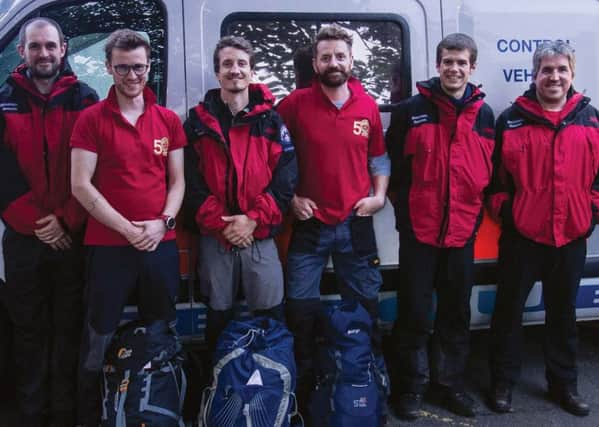Search and Rescue: New trainees were put through their paces


At the time, over 30 applications had been received and following the rigorous selection process, six candidates were chosen to progress for full team training. Since then, the trainees have been working hard and have spent the last six months gaining an understanding of essential skills including; callout protocol, stretcher assembly, handling, carrying and maintenance, casualty handling/packaging and evacuation on a stretcher. They have also gained knowledge of basic rope work and the hazards associated with working in and around swift water and floodwater. One of the final areas of their 6+month Trainee Phase is familiarisation and the hazards of working near helicopters, in particular the Air Ambulance and the HM Coastguard SAR-H.
On June 23, CVSRT were deployed on a joint training exercise with trainee aircrew paramedics from the Yorkshire Air Ambulance. Before trainee aircrew paramedics can become operational they are required to complete Mountain Rescue/survival training as part of their 3-week Helicopter Emergency Medical Service (HEMS) crew course. On this training exercise, trainee aircrew paramedics were ‘dropped’ on the moors in a simulated crash and then had to arrange for their own rescue. CVSRT were alerted to the incident and deployed to the scene to search and locate the crashed aircrew, and then working together carried a patient from the crash site across the moors to CVSRT vehicles waiting nearby. Given the frequency of joint rescues in remote locations, it is important that all members of the aircrew and Mountain Rescue teams completely understand the capabilities of each other and that combined efforts help to make the patient care in remote places as effective as possible.
Advertisement
Hide AdAdvertisement
Hide AdLater this month, CVSRT Trainees will face another assessment weekend with the assistance of our twin-team, Dublin & Wicklow Mountain Rescue Team. This coincides with Reek Sunday at Croagh Patrick, County Mayo - an annual event that attracts in excess of 60,000 pilgrims onto the mountain, in all weather conditions and with some pilgrims making the climb barefoot. Our trainee’s role during this event is to assist the Irish Mountain Rescue teams and support the emergency services. Over previous years the Reek Sunday weekend has proved to be the perfect opportunity for our trainees to fully use all their newly acquired skills in potentially challenging conditions.
Following this assessment, the successful individuals return to the Calder Valley as Probationary Members and will be integrated into the full team, and if appropriate, join the callout list to respond to real incidents. During this final probationary training period the ‘probies’ are mentored until they graduate as full team members in January 2018. The challenging and often grueling training programme focuses on a wide range of essential skills inline with Mountain Rescue England & Wales (MREW) guidelines and in support of the statutory emergency services.
It’s worth remembering that when dealing with life-saving incidents, our member’s safety is paramount, closely followed by the casualty’s rescue, so our training needs to be thorough and precise. The selection process and training programme has been tried and tested since 1966, with several full team members still operational with over 40+ years experience.
To find out more visit: www.cvsrt.org.uk/the-team/join-us